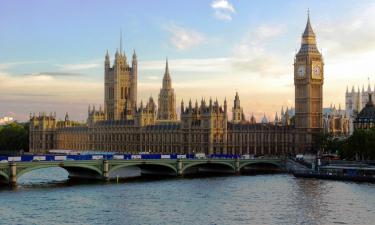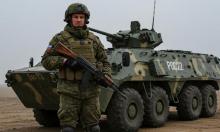U.S. unprepared for next terror attack
The former Sept. 11 commission is giving the U.S. Congress and the White House poor marks on protecting the United States against an inevitable terror attack because of their failure to enact several strong security measures. The 10-member panel, equally divided between Republicans and Democrats, prepared to release a report Monday assessing how well their recommendations have been followed. They say the government deserves "more F's than A's" in responding to their 41 suggested changes.
"People are not paying attention," chairman Thomas Kean, a former Republican governor of New Jersey, said Sunday. "God help us if we have another attack."
Since the commission's final report in July 2004, the government has enacted the centerpiece proposal to create a national intelligence director. But it has stalled on other ideas, including improving communication among emergency responders and shifting federal terrorism-fighting money so it goes to states based on risk level. "There are so many competing priorities," said vice chairman Lee Hamilton, a former Democratic congressman from Indiana. We've got three wars going on: one in Afghanistan, one in Iraq and the war against terror. And it's awfully hard to keep people focused on something like this."
"We believe that another attack will occur. It's not a question of if. We are not as well-prepared as we should be," Hamilton said in a joint appearance with Kean on NBC's "Meet the Press."
National security adviser Stephen Hadley said President George W. Bush is committed to putting in place most of the recommendations. "We are safer, but not yet safe. There is more to do," Hadley said on "Fox News Sunday."
Some members of the commission, whose recommendations now are promoted through a privately funded group known as the 9/11 Public Discourse Project, contended the government has been remiss by failing to act more quickly.
Kean and Hamilton urged Congress to pass spending bills that would allow police and fire to communicate across radio spectrums and to reallocate money so that Washington and New York, which have more people and symbolic landmarks, could receive more for terrorism defense. Both bills have stalled in Congress, in part over the level of spending and turf fights over which states should get the most dollars.
Congress established the commission in 2002 to investigate government missteps that led to the attacks of Sept. 11, 2001. Nearly 3,000 people were killed when 19 Arab hijackers organized by al-Qaida flew airliners into New York City's World Trade Center and the Pentagon and caused a crash in the Pennsylvania countryside.
The panel's 567-page final report, which became a national best seller, did not blame Bush or former President Bill Clinton for missteps contributing to the attacks but did say they failed to make anti-terrorism a higher priority. The commission also concluded that the Sept. 11 attack would not be the nation's last, noting that al-Qaida had tried for at least 10 years to acquire weapons of mass destruction, reports the AP. I.L.
Subscribe to Pravda.Ru Telegram channel, Facebook, RSS!




